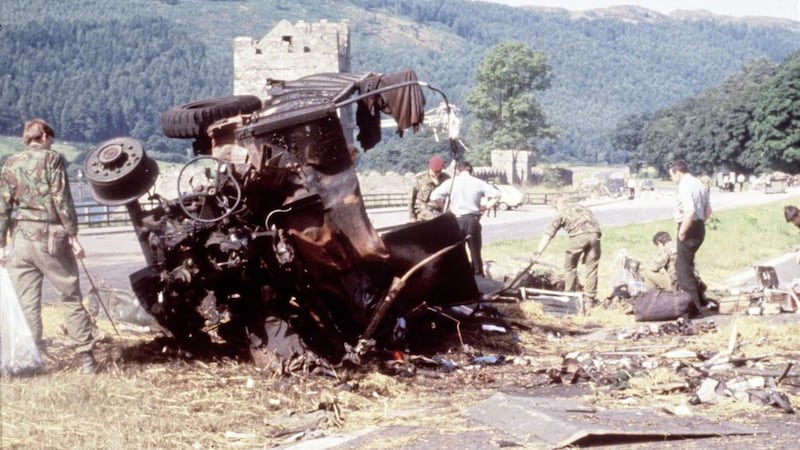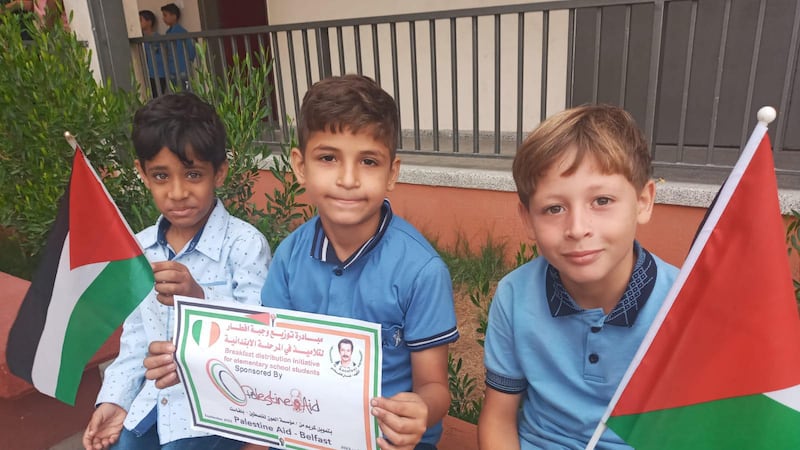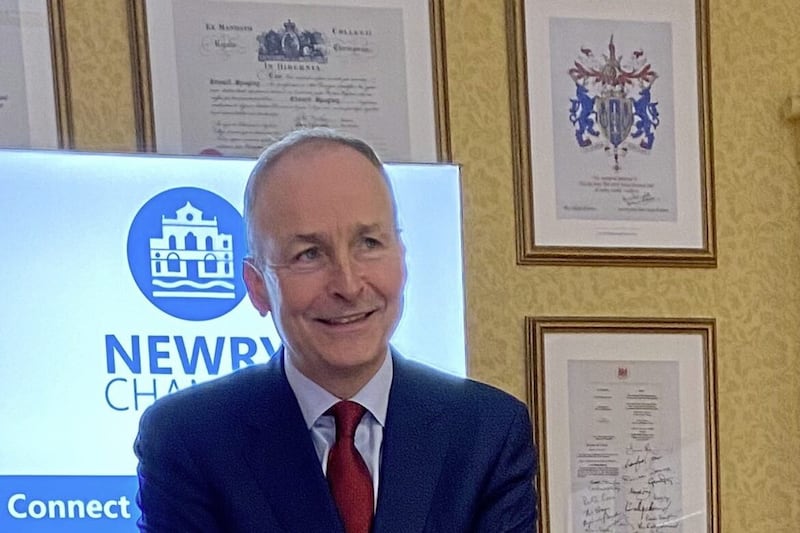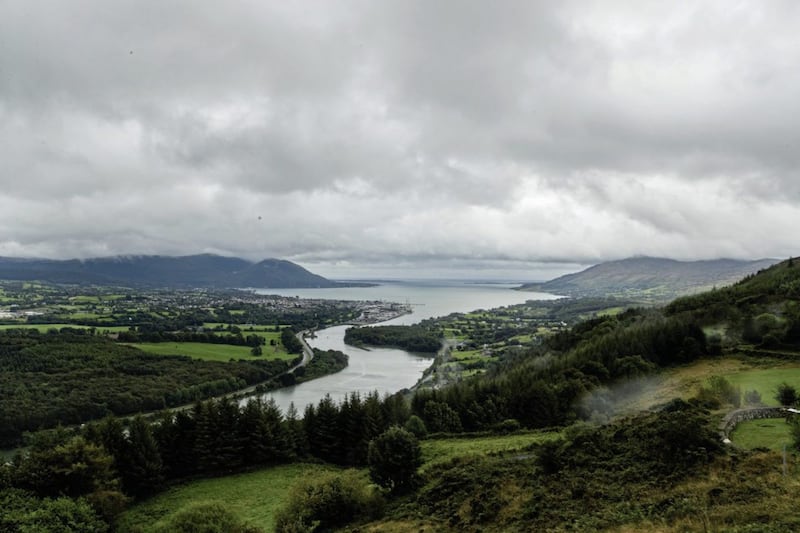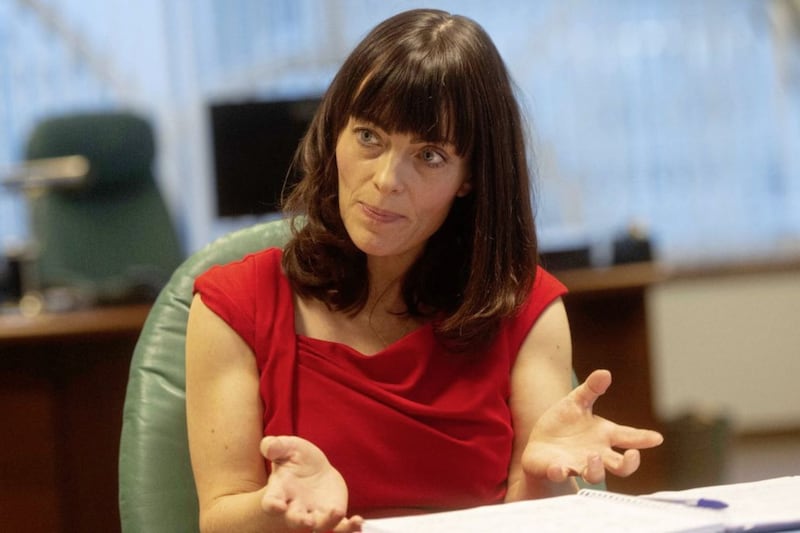A civilian caught up in an IRA attack that claimed the lives of 18 British soldiers 40 years ago has described it as being like something from “Dante’s Inferno”.
Former photographer Peter Maloy has vivid memories of the double IRA bomb attack at Narrow Water, near Warrenpoint in Co Down.
The pensioner revealed how he watched as soldiers died before his eyes and tells how a squaddie threatened to shoot him on a day which saw 23 people killed in two IRA attacks.
Of the British soldiers who died 16 were members of the Parachute Regiment and two belonged to the Queen’s Own Highlanders.
Civilian Michael Hudson, whom Lost Lives says was a coachman for Queen Elizabeth, was also killed at Narrow Water while bird watching on an island opposite the blast site.
He was shot by British soldiers who believed they were being fired on by republicans.
The ambush came on the same day as the IRA killed British royal Lord Louis Mountbatten when a bomb exploded on his boat off the coast of Co Sligo.
Two teenagers, including Mountbatten’s grandson, and an elderly extended family member also died in the blast near the village of Mullaghmore.
The death of Mountbatten, a distant cousin of Queen Elizabeth and uncle of her husband Philip, sent shockwaves through the British establishment.
Hours later the attack at Narrow Water would also grab headlines across the globe.

The area sits on the banks of Newry River near Carlingord Lough, which separates the rolling Mourne Mountains in Co Down from the Cooley range in Co Louth.
An IRA unit launched its attack from a vantage point in Co Louth as a Land Rover and two truck loads of troops made their way from Ballykinler army base to Newry.
When the first of two bombs, an 800lb device hidden in a lorry load of hay parked at a roadside, was detonated Peter Maloy was at his nearby home.
Instinct kicked in as he grabbed his camera bag and made for the explosion point.
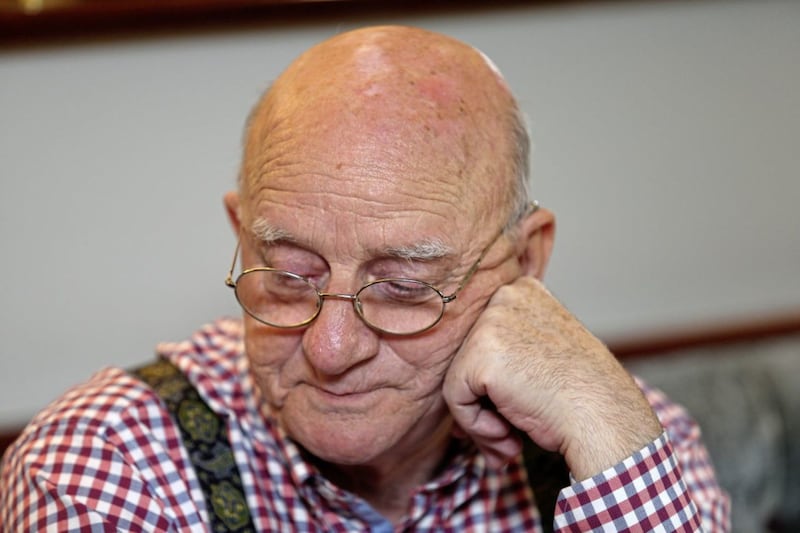
As he neared the bomb site he was met by chaotic scenes.
“This policeman came running and he was screaming ‘get out, get away, don’t go in they are all dead,” he said.
“Actually, that policeman later became a priest.”
“The straw was coming down like confetti and the wind was catching it and smoke and….it left you nearly blind going in.”
The seasoned photographer said those caught up in the blast stood little chance of survival.
“I could smell it before I could see it,” he said.
“It was something burning and I just turned and there it was, the jeep and six soldiers in the jeep and the guy was still holding on to the steering wheel but they were all gone.
“They had absolutely no chance.”
Mr Maloy said those inside the vehicle “had caught the full force of the blast” and believes death was almost instant.
“Actually I could see this guy’s watch, he was still holding on (to the steering wheel) like that so his arms were still outstretched,” he said.
“They were burning and they were very clearly dead.
“But they weren’t blown out of the vehicle.”
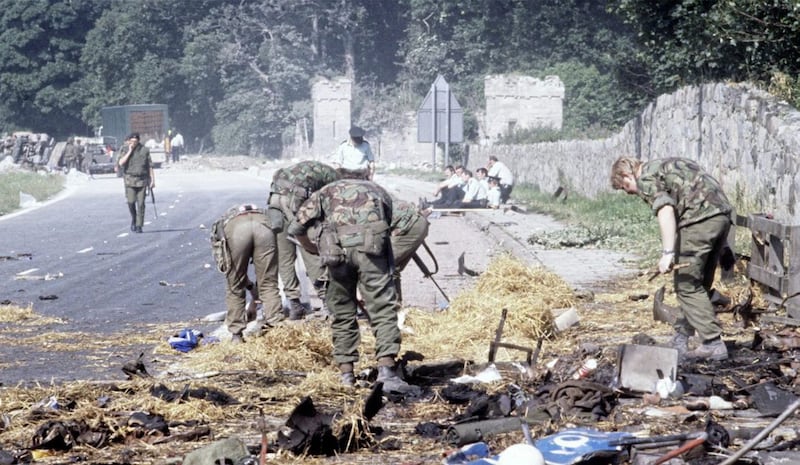
Mr Maloy said his own survival instinct kicked in as ammunition started to explode in the intense heat.
“The ammunition was starting to go off with the heat so we got off side quick,” he said.
“Now you could not get anywhere within two yards of that truck with the heat that was coming off (it),” he said.
“It was very horrific to watch but at the same time you think of yourself first.
“You have seen them, they are gone, they are dead, you can be of no use to them.”
Mr Maloy said that after the first blast, which killed six soldiers, survivors lay behind a picket fence.
He claims that an officer then ordered his men to take “hard cover” over fears that a secondary device may have been left in nearby culverts.
He explained that some soldiers then made their way to a nearby gate lodge where the IRA had planted a second bomb.
This detonated around 20 minutes after the first killing 12 more soldiers.
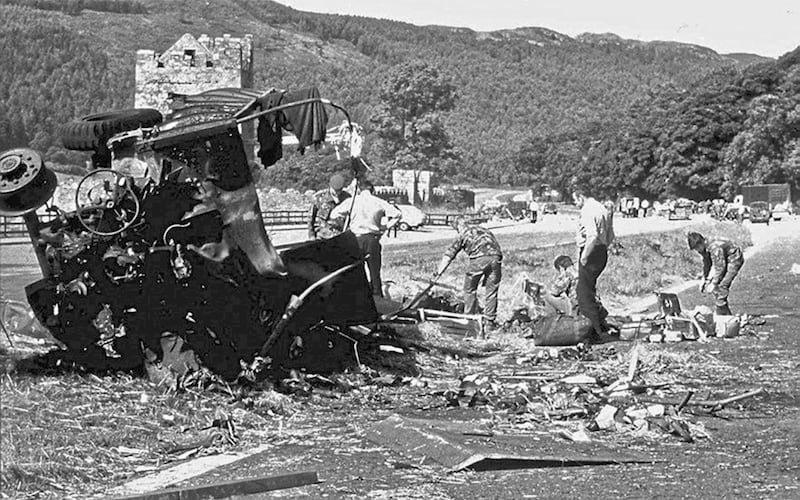
The pensioner says he made a last minute decision not to take cover at the gate lodge and instead hid behind a military truck parked nearby.
Mr Maloy saw at first-hand the impact of the second blast.
“I got a picture of a soldier and he was… horizontal still holding his rifle, coming (flying) past me.
“Now, the wall was a rather jagged wall and he hit that and he was dead.
“He might have been dead at that time (he went flying past me) but once he hit the wall he was gone.”
After the second explosion the photographer took time to steady himself.
“It’s started getting a bit confused after that,” he said.
“I got up and went out and there was a lot of shouting, screaming and crying going on and I was still trying to get my own act together so I just switched off.
“Now when I say switched off, ten or 15 seconds.
“But I just closed off.
“I was able to get clear shots, I didn’t take body shots, I was never into that, just a general scene shot.”
Mr Maloy said that after the second blast a soldier threatened to shoot him.
“It was ok for about 10 minutes then they (British soldiers) started getting their act together,” he said.
“Obviously there was a lot of debris about, human debris, that is something that you tried not to look at.
“The next thing this guy comes running at me with a rifle and his eyes were just gone, I mean he had lost it and I was a civilian and there was a camera around my neck.
“I was in the wrong place at the wrong time. He said ‘get out or I will shoot you now’.”
He said that two other soldiers then rugby tackled their colleague before also ordering the photographer to leave the area.
“My car was only about 100 metres away on the other side of the roundabout,” he said.
“It was the longest 100 metres I ever walked.
“I kept expecting something to take me down.
“In their situation I would probably have felt the same.”

He said the aftermath of the blast was like “Dante’s Inferno”, a description taken from a poem by Italian writer Dante Alighieri who described a journey through hell.
As he made the short trip home the pensioner said he decided to give up photography there and then.
“I had actually taken that decision before I got into the house,” he said.
“I said ‘that’s it, never again”.
“I just couldn’t do it.”
Mr Maloy said that today he lives a “content” life.
“My feelings about the whole thing - when you are dead you are dead, you are not any religion, you are a dead body,” said.
“Whether you were blown up or whether you planted the bomb, it doesn’t make any difference.
“When you are dead you are no religion, you are not one side or the other.
“So you respect both sides.
“Take the clothes off and we are all the same.”
Within a month of Narrow Water, Mr Maloy had joined the fire service where he enjoyed a successful career.
He said that the images he saw that day 40 years ago remain with him.
“I saw more in that short space of time that would do me for this lifetime,” he said.
He added: “You will never come to terms with it, what happened happened, you deal with it as best you can and you don’t make presumptions, you don’t say they are right or they are wrong,” he said.
“It doesn’t come into my life.”

